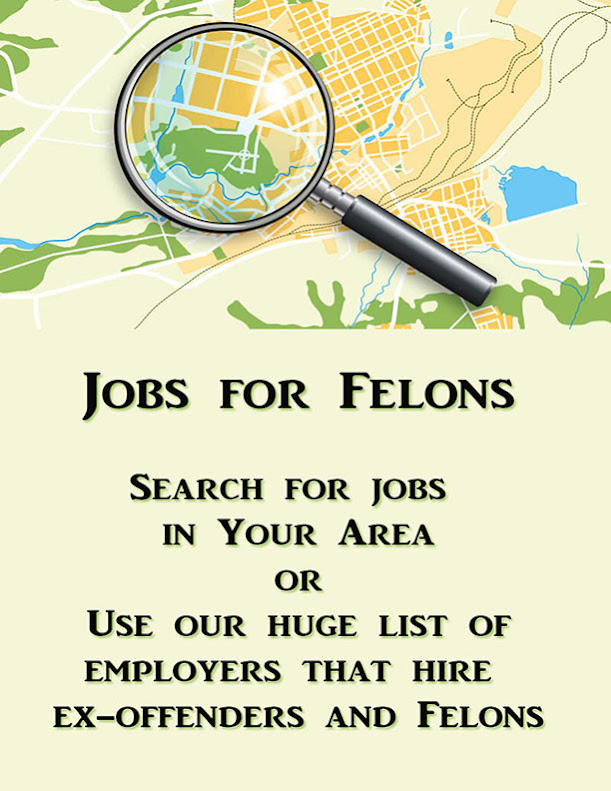 |
| PHOTO ILLUSTRATION BY THE DAILY BEAST |
STARS & BARS
How the Army Recruits Straight Out of Prisons
There is one big difference between the second annual Second Chance Job Fair and a ‘regular’ employment expo. Here, everyone looking for work had been to jail.
As job fairs go, this one didn’t look much different from any other. Men and women of various ages wandered from booth to booth in business attire, filling out applications and handing out resumes. A photographer was set up on one side of the room, taking professional pictures the job seekers could use on their LinkedIn pages.
However, there was one big difference between this, the second annual Second Chance Job Fair, and a “regular” employment expo. Here, everyone looking for work had been to jail.
Twenty-three employers had been invited by the organizers, M.A.D.E. Transitional Services, a Rockland County-based reentry organization; only a handful showed up. Unibody Fitness, a Brooklyn personal training business run by ex-offenders, had a table set up, and a representative from People Ready, the temp agency, was on hand. Tarik Greene, M.A.D.E.’s co-founder and deputy executive director, said Shake Shack came last year, but didn’t make it this time.
A volunteer sat at a card table offering resume advice.
“There are too many people saying, ‘I’ll take anything,’” she said. “It tells me they haven’t had an opportunity to think expansively; how will they tell their own story?”
If that story happened to involve joining the military, they’d be in luck. Along the far wall, two U.S. Army recruiters sat quietly, handing out brochures to the smattering of job seekers who slowed down long enough to take one. Unlike most employers, who are normally solicited by M.A.D.E., Greene said the Army in fact reached out to them this year and asked to attend.
“You can have one non-violent felony as an adult,” one of the recruiters, Staff Sergeant Jeffrey Boswell, told The Daily Beast. “Some of the best and most capable candidates we get require a waiver.”
The current pool of qualified applicants from which the Army can recruit is the shallowest in over a decade, with just a quarter of all 17 to 24 year-olds eligible to join and only one in eight willing to. Stretched thinner than it’s been in years, with a mandate to grow by 8.500 soldiers under the 2018 National Defense Authorization Act, the Army is granting so-called “moral waivers” to people it would likely turn away under normal conditions, including convicted felons.
Recruitment standards in the U.S. military are “elastic, to put it mildly, depending on need,” according to retired Army Colonel Andrew Bacevich, who graduated from, and later taught at, West Point.
“When recruits are hard to come by, standards previously considered sacrosanct get waived,” Bacevich told The Daily Beast. “Offering waivers to convicted felons suggests that the services—probably the army in particular—are struggling to meet their quotas of warm and willing bodies. As to whether military service offers a way to turn your life around, there's no easy answer. For some, sure. For others, it's probably a dumb idea for the individual and for the service.”
The vagaries of the job market have a notable impact on the use of moral waivers, said Kate Germano, who commanded the Marine Corps’ 4th Recruit Battalion at Parris Island before retiring as a Lt. Colonel in 2016.
“It’s becoming harder for all of the services to make their recruiting goals; this is what happens anytime conditions favor the kids just graduating high school or college,” Germano told The Daily Beast. “But if we just open the floodgates without looking at the whole person because we’re worried about the economy being strong and not making mission, that’s when things become problematic.”
“The United States Army does not actively seek individuals who require conduct waivers,” Army spokesperson Lt. Nina Hill told The Daily Beast in a statement. “We seek individuals who have the ability to meet all of our cognitive, physical and moral qualifications and can successfully complete a term of service. A small percent of new recruits meet the requirements to join the Army with a conduct waiver. We only consider conduct waivers for individuals who are otherwise fully qualified and have met prescribed waiting periods that prove rehabilitation has occurred. If an individual requests a conduct waiver for a past offense, factors such as the nature of offense, how long ago the offense occurred, and the overall number of infractions, are critical in determining suitability for service. All new recruits must meet Department of Defense accessions standards.”
Moral waivers are given out on a case-by-case basis, and as Chief of Staff of the Army Gen. Mark Milley said last year, “considering a waiver is not the same as granting a waiver.”
Still, between 2003 and 2006, the military allowed 4,230 convicted felons to enlist by granting them moral waivers. In 2006 and 2007, waivers were given to three applicants with manslaughter convictions; 11 who had been convicted of arson; 142 who had been convicted on burglary charges; seven with convictions for sex crimes; three with convictions for making terrorist threats, including bomb threats; and one with a conviction for kidnapping. In 2008, the Army issued 372 waivers for felony convictions, down from 511 the year before. In 2009, the Army granted 220 waivers for “Major Misconduct (Conviction),” seven in 2010, and none between 2011-2014.
One in three American adults—70 million people—have a criminal conviction. 650,000 people are released from prison in the United States each year, and three in four of them are unable to find a job during the first year they’re out.
“I don’t know how many ex-prisoners would want to do it, but the military can be a good place to get your life together,” said Brian DiMarco, a NYC wine and liquor importer who spent three years “finding himself” in the Navy after high school. “It can be a little bit like trading one form of prison for another, but at least the military gives you free healthcare for life.”
Peter Mansoor, a retired Army colonel who served as executive officer to General David Petraeus in Iraq and now teaches military history at Ohio State, isn’t particularly keen on moral waivers but is pragmatic about their existence.
“In general it’s better if the military does not grant moral waivers because we know that on average, people who have had offenses in their past don’t do as well with discipline in the military,” Mansoor told The Daily Beast. “That being said, for those that do join having received a moral waiver, some of them do turn their lives around and it’s a great thing for those people. I’m just not sure that we want to devise military policy on that basis, though.”
When she was on recruiting duty, Kate Germano’s team analyzed situation data and found a high correlation between people with felony waivers and those who didn’t complete basic training. Yet, there are still some good candidates in there. It’s just a matter of identifying them, she explained.
“I’m still in touch today with people I took a chance on, so it does work,” said Germano. “But if we’re not looking at both the whole person and the systems we have in place to make sure they’re committed, that’s how you end up with those horror stories.”
Plenty of recruits given moral waivers turn out to be model soldiers. But there are a fair number of horror stories, and they’re not hard to find. In 2005, the Army accepted recruit Steven Dale Green under a moral waiver for three past convictions (underage alcohol possession, drug possession, and fighting). The following year, while deployed to Iraq, Green and four other soldiers gang-raped 14-year-old Abeer Qassim al-Janabi, murdered her and her family, then burned the bodies. A year after that, Washington Navy Yard shooter Aaron Alexis joined the service despite being arrested on a gun charge in 2004.
The successes, on the other hand, get far less attention.
Nasser Hempel spent 11 years behind bars for his role in a 1991 armed robbery outside a Houston nightclub. Shortly after he was released in 2002, Hempel took a trip to South Padre Island with some friends for Spring Break. The Army had an obstacle course set up, and Hempel decided to give it a try.
“I was working for Viacom at the time, hanging their billboards, so I did a lot of climbing on a daily basis,” Hempel told The Daily Beast. “Me being a little cocky, I asked one of the recruiters who had the fastest time. He pointed to this guy from the 10th Mountain Division, a hotshot. I said, ‘I’m gonna beat your time.’ And I beat his time.”
Impressed, the recruiters asked Hempel if he had ever considered joining the Army. He replied that he had just gotten out of prison—it had been less than a year—and was afraid he wouldn’t qualify. You might with a moral waiver, the recruiters told him.
Like most people who have done significant amounts of time, finding his footing again on the outside was difficult for Hempel. When life began to hit him “like a sledgehammer,” Hempel decided to go to his local recruiting office and see what his options were. He was 33 years old.
The recruiter he spoke with seemed to lose interest when Hempel revealed his criminal history. But another one sitting nearby overheard their conversation and took an interest in Hempel, offering to help guide him through the moral waiver process. They began the paperwork, and eight months later, the day after Hempel got off parole he signed his Army contract, becoming one of 1,002 incoming recruits that year with felony records.
After basic training, Hempel would ship out for back-to-back tours in Iraq and Afghanistan with the 808th Engineering Company. He left the Army and returned to Houston five years ago, where he now runs a bootcamp-style gym.
“There’s been some collateral damage,” said Hempel, choking up. “I got blown up three times. I ended up getting divorced. There was a time when I got back that I was borderline homeless. It was a rough time but to this day I still look back and say, ‘I wouldn’t change a thing.’”
There are studies that show a correlation between pre-service criminal history and in-service misconduct. Others have found service members with moral waivers are more likely to complete their terms of service than those accepted without them. A more accurate picture only comes into focus upon a more granular analysis of the available data. One study found the correlation between unsuitability discharges and whether or not a recruit graduated from high school to be significantly stronger than having been issued a moral waiver.
“Thus, unless we are prepared to say that, across the board, non-graduates make bad troops, we should not say that ex-offenders cannot make good ones,” wrote legal scholar Michael Boucai in his 2007 study, “‘Balancing Your Strengths Against Your Felonies’: Considerations for Military Recruitment of Ex-Offenders.”
Of course, the absence of a criminal record doesn’t always mean an absence of criminal behavior. While the rate of criminal offenses is pretty evenly distributed across the general population, those who wind up getting charged with those crimes is not, explained Boucai, now a professor at the University of Buffalo School of Law.
“If the question is how many people in the Armed Forces have smoked marijuana at some point, you’ll get a pretty good cross-section across all races,” Boucai told The Daily Beast. “But if the question is how many people have smoked marijuana and have some sort of criminal record for it, that’s going to be overwhelmingly black and brown. The idea that we’re letting in people who are morally bad is based on the criminal record, which is a record of encounters with the criminal justice system. In reality, it’s very often not telling us who has actually committed an offense.”
According to Boucai, bringing ex-offenders into the military is not only good for the offenders themselves but also a smart investment for the population at large, by allowing offenders to restart their lives when the bulk of the private sector has all but discarded them.
Right now, there exists a “de facto ex-offender recruitment policy” in the US military, maintains Boucai. Recruiters need to hit their targets when the service needs bodies, often meaning, Boucai maintains, that violations are ignored, applicants are told to omit negative information, and background checks are left incomplete.
Each of the services has different standards and approval rates when it comes to waivers. To those who receive them, moral waivers are for the most part presented as an exception, not the rule. But, contends Boucai, many problems related to ex-offenders in the service might be traced back to this system of “winks and nods,” rather than simply acknowledging the fact that the military ranks include a certain number of people with checkered pasts, says Boucai. (“People should understand that the majority of ex-offenders, when offered a job, make good employees,” former NYC Corrections Commissioner Martin Horn told The Daily Beast, “and it undermines civil society when we ostracize them.”)
According to a 2013 Army War College Strategy Research Project by Lt. Colonel John Haefner, informed leadership could pay closer attention to recruits who enlisted under moral waivers—not just to steer them away from trouble, but to be better prepared for other issues that could arise, such as the fact that males with a criminal conviction are 200 percent more likely to attempt suicide than those without.
However, privacy laws prohibit commanders from knowing which soldiers under their supervision have records or what’s in their criminal histories.
Nevertheless, if a recruiter has adequately tested an applicant’s commitment to joining the military before they ship out to boot camp, the higher-ups don’t need to know about their pasts, said Kate Germano. What’s important, she maintains, is doing proper due diligence on people from the very beginning to “make sure they’re a good fit for the service and the service is a good fit for them.”
As the Second Chance Job Fair wound down, Staff Sgt. Boswell, the recruiter, said he was feeling cautiously optimistic.
“I think prison is kind of good preparation for the Army, in a way,” he said. “You have to be mentally tough in the Army, you also have to be mentally tough in prison.”
Boswell’s partner, Staff Sergeant Minji Hwang, explained that people with criminal histories tend to be “really motivated when they’re with us,” because they have a lot to prove, as well as a lot to lose. Plus, she added, Army benefits are really, really good.
The two may not have broken any recruiting records that day, though they emphasized that that wasn’t really the point.
“We didn’t come here expecting to recruit dozens of people,” Boswell said, “but we definitely got two or three that we can help.”
Jobs for Felons: The Facts about Companies that Hire Ex offenders and Felons (2018)
companies hire felons | companies that hire felons | Companies that hire ex-offenders | Employers that hire ex-offenders | employers that hire felons | Jobs for felons | jobs for ex-offenders | jobs that hire felons | places that hire felons | felon friendly jobs | felon friendly employers | how to get a job with criminal record | second chance jobs for felons | temp agencies that hire felons | high paying jobs for felons | Moral Waiver
Eric Mayo




























